#Jane Austen
Text


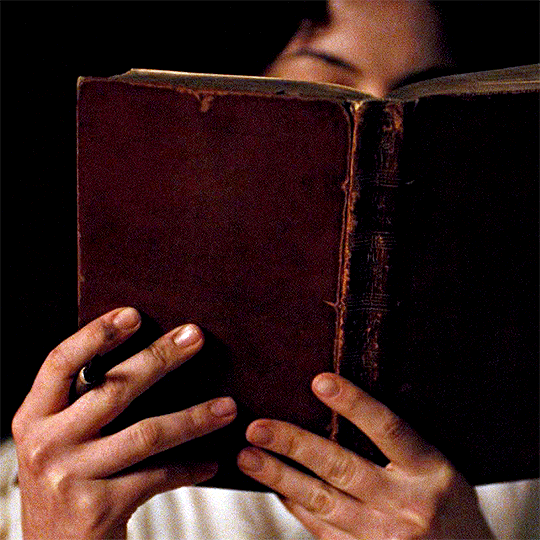





A novel must show how the world truly is, how characters genuinely think, how events actually occur. A novel should somehow reveal the true source of our actions.
BECOMING JANE (2007) dir. Julian Jarrold
#becoming jane#perioddramaedit#becomingjaneedit#filmedit#filmgifs#perioddramasource#userbennet#tusereliza#userpavlova#jane austen#anne hathaway#*film#*
290 notes
·
View notes
Text

fatima aamer bilal, from we were put on this earth desperate, hungry and willing.
[text id: you get nervous when someone holds your hand, you wonder if they can feel the rot.]
#fatima aamer bilal#we were put on this earth desperate hungry and willing#poetry#self hatred#self loathing#poeticstories#literature#book qoute#art#book quotations#self deprecation#childhood#girlhood#yearning#longing#poetry collection#poem#dark poetry#dark academia#mental illness#bts#franz kafka#sylvia plath#lana del rey#mitski#hozier#mahmoud darwish#pheobe bridgers#jane austen#web weaving
315 notes
·
View notes
Text
emma woodhouse is the funniest austen girl. she has one-sided drama with the most reserved girl who has done nothing but literally just mind her business. she gets angry about not being invited to a social event even though she would have said no just because she would have liked to be asked. she's said she's aiming to read more for years but has never actually read more. she refers to her best friend as being naive and not very smart and kind of manipulates her while simultaneously both complicating her life greatly from the moment they meet to being her ride or die. she is literally The Problem. she denies that she is The Problem. she makes me want to pull my hair out. I love her more than anything.
54 notes
·
View notes
Text
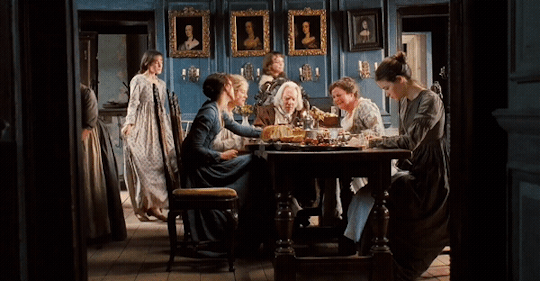




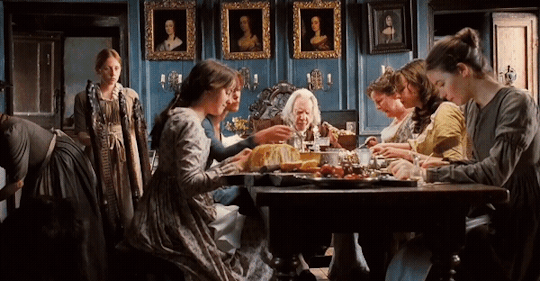
PRIDE AND PREJUDICE (2005)
dir. joe wright
#pride and prejudice#pride and prejudice 2005#jane austen#costume drama#period drama#perioddramaedit#perioddramagif#onlyperioddramas#perioddramasource#elizabeth bennet#mr bennet#mrs bennet#jane bennet#lydia bennet#kitty bennet#mary bennet#keira knightley#donald sutherland#brenda blethyn#rosamund pike#carey mulligan#jena malone#talulah riley#my gifs#mine
35 notes
·
View notes
Text
The former customer service representative in me is cringing...
“Should I send it to Mrs. Goddard’s, ma’am?” asked Mrs. Ford.—“Yes—no—yes, to Mrs. Goddard’s. Only my pattern gown is at Hartfield. No, you shall send it to Hartfield, if you please. But then, Mrs. Goddard will want to see it.—And I could take the pattern gown home any day. But I shall want the ribbon directly—so it had better go to Hartfield—at least the ribbon. You could make it into two parcels, Mrs. Ford, could not you?”
“It is not worth while, Harriet, to give Mrs. Ford the trouble of two parcels.” (Emma)
“No more it is.”
“No trouble in the world, ma’am,” said the obliging Mrs. Ford.
Inside her head, the obliging Mrs. Ford repeated to herself, "The customer is always right... Miss Woodhouse and Smith spend a great deal of money here, never good to disagree with a customer..."
31 notes
·
View notes
Text
girls born after 1793 can't sew shirts. all they know is dance minuet, trim bonnet, eat syllabub, and lie
25 notes
·
View notes
Text



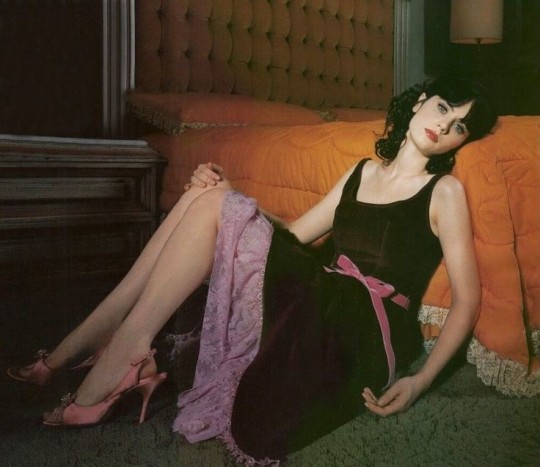
⌚️♦️🎨
#girlblogging#tumblr girls#2014 tumblr#girlblogger#gaslight gatekeep girlboss#2000s#girl interrupted#2014 aesthetic#coquette#2014 revival#jane austen#early 2000s#2012 tumblr#it girl#girlhood#manic pixie dream girl#coquette girl#gaslight gatekeep girlblog#hell is a teenage girl#just girly things#girl interrupted syndrome#girly tumblr#just girlboss things#that girl#this is what makes us girls#malibu girl#spotify#2013 tumblr#tumblr 2014#2016 tumblr
28 notes
·
View notes
Text
So i desperately need someone to rewrite all of pride and prejudice BUT it’s jegulus.
like could you IMAGINE ITTTT. James is Darcy and reg is Lizzie. They meet at a ball, James is in a pissy mood and is friends with Sirius (who I suppose would be uh- Jane????). The whole thing with Mr Collin’s literally being related to Lizzie works too cuz this *is* the noble house of black we’re talking abt, he can be Lucius or smth.
#You’d have to pretend homophobia didn’t exist but IT COULD WORK#pride and prejudice#gay#gay dead wizards#marauders#starchaser#regulus black#james potter#sirius black#james x regulus#alternate universe#jane austen#classics#fanfic#marauders fanfic#hear me out#marauders fandom#dead gay wizards#the marauders#wolfstar
22 notes
·
View notes
Text
I love these because Wentworth probably thinks he is so sneaky and Anne just goes: „I SEE YOU, HUN AND I LOVE YOU!“
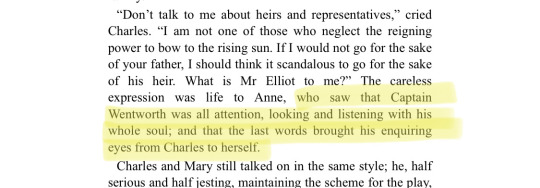

20 notes
·
View notes
Text
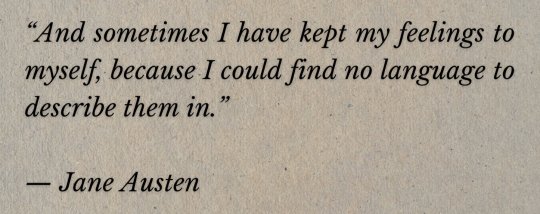
#jane austen#dark academia aesthetic#academia aesthetic#chaotic academia#classic academia#light academia aesthetic#dark academia#soft academia#romantic academia#study motivation#studyspo#studyinspo#studying#study aesthetic#study notes#study space#studygram#study blog#light academia#classic literature#poetry#art academia#art#books#libraries#book quotes#literature quotes#deep quotes#life quotes#relatable quotes
40K notes
·
View notes
Text
what a shame doctors don’t prescribe vacation to secluded seaside towns like they used to
69K notes
·
View notes
Text
I relate to this so much! I too occasionally find myself wondering what the original reactions of classic stories were like.
22K notes
·
View notes
Text
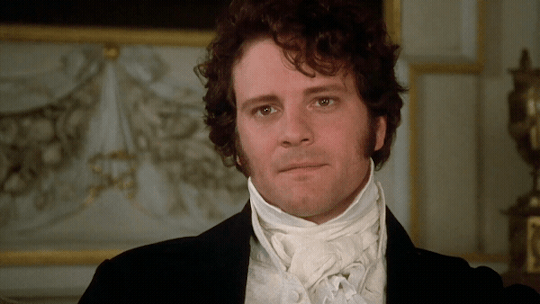



PRIDE AND PREJUDICE (1995)
dir. simon langton
#pride and prejudice 1995#pride and prejudice#jane austen#costume drama#period drama#perioddramaedit#perioddramagif#onlyperioddramas#perioddramasource#elizabeth bennet#fitzwilliam darcy#georgiana darcy#jennifer ehle#colin firth#emilia fox#my gifs#mine
27 notes
·
View notes
Text
Someone on Reddit keeps getting recommended the Jane Austen subreddit despite knowing nothing about Jane Austen, so they posted an Ask Me Anything. Best response so far:

Sorry JA, no longer a truth universally acknowledged.
39K notes
·
View notes
Text
A Guide to Historically Accurate Regency-Era Names

I recently received a message from a historical romance writer asking if I knew any good resources for finding historically accurate Regency-era names for their characters.
Not knowing any off the top of my head, I dug around online a bit and found there really isn’t much out there. The vast majority of search results were Buzzfeed-style listicles which range from accurate-adjacent to really, really, really bad.
I did find a few blog posts with fairly decent name lists, but noticed that even these have very little indication as to each name’s relative popularity as those statistical breakdowns really don't exist.
I began writing up a response with this information, but then I (being a research addict who was currently snowed in after a blizzard) thought hey - if there aren’t any good resources out there why not make one myself?
As I lacked any compiled data to work from, I had to do my own data wrangling on this project. Due to this fact, I limited the scope to what I thought would be the most useful for writers who focus on this era, namely - people of a marriageable age living in the wealthiest areas of London.
So with this in mind - I went through period records and compiled the names of 25,000 couples who were married in the City of Westminster (which includes Mayfair, St. James and Hyde Park) between 1804 to 1821.
So let’s see what all that data tells us…
To begin - I think it’s hard for us in the modern world with our wide and varied abundance of first names to conceive of just how POPULAR popular names of the past were.
If you were to take a modern sample of 25-year-old (born in 1998) American women, the most common name would be Emily with 1.35% of the total population. If you were to add the next four most popular names (Hannah, Samantha, Sarah and Ashley) these top five names would bring you to 5.5% of the total population. (source: Social Security Administration)
If you were to do the same survey in Regency London - the most common name would be Mary with 19.2% of the population. Add the next four most popular names (Elizabeth, Ann, Sarah and Jane) and with just 5 names you would have covered 62% of all women.
To hit 62% of the population in the modern survey it would take the top 400 names.
The top five Regency men’s names (John, William, Thomas, James and George) have nearly identical statistics as the women’s names.
I struggled for the better part of a week with how to present my findings, as a big list in alphabetical order really fails to get across the popularity factor and also isn’t the most tumblr-compatible format. And then my YouTube homepage recommended a random video of someone ranking all the books they’d read last year - and so I present…
The Regency Name Popularity Tier List
The Tiers
S+ - 10% of the population or greater. There is no modern equivalent to this level of popularity. 52% of the population had one of these 7 names.
S - 2-10%. There is still no modern equivalent to this level of popularity. Names in this percentage range in the past have included Mary and William in the 1880s and Jennifer in the late 1970s (topped out at 4%).
A - 1-2%. The top five modern names usually fall in this range. Kids with these names would probably include their last initial in class to avoid confusion. (1998 examples: Emily, Sarah, Ashley, Michael, Christopher, Brandon.)
B - .3-1%. Very common names. Would fall in the top 50 modern names. You would most likely know at least 1 person with these names. (1998 examples: Jessica, Megan, Allison, Justin, Ryan, Eric)
C - .17-.3%. Common names. Would fall in the modern top 100. You would probably know someone with these names, or at least know of them. (1998 examples: Chloe, Grace, Vanessa, Sean, Spencer, Seth)
D - .06-.17%. Less common names. In the modern top 250. You may not personally know someone with these names, but you’re aware of them. (1998 examples: Faith, Cassidy, Summer, Griffin, Dustin, Colby)
E - .02-.06%. Uncommon names. You’re aware these are names, but they are not common. Unusual enough they may be remarked upon. (1998 examples: Calista, Skye, Precious, Fabian, Justice, Lorenzo)
F - .01-.02%. Rare names. You may have heard of these names, but you probably don’t know anyone with one. Extremely unusual, and would likely be remarked upon. (1998 examples: Emerald, Lourdes, Serenity, Dario, Tavian, Adonis)
G - Very rare names. There are only a handful of people with these names in the entire country. You’ve never met anyone with this name.
H - Virtually non-existent. Names that theoretically could have existed in the Regency period (their original source pre-dates the early 19th century) but I found fewer than five (and often no) period examples of them being used in Regency England. (Example names taken from romance novels and online Regency name lists.)
Just to once again reinforce how POPULAR popular names were before we get to the tier lists - statistically, in a ballroom of 100 people in Regency London: 80 would have names from tiers S+/S. An additional 15 people would have names from tiers A/B and C. 4 of the remaining 5 would have names from D/E. Only one would have a name from below tier E.
Women's Names
S+ Mary, Elizabeth, Ann, Sarah
S - Jane, Mary Ann+, Hannah, Susannah, Margaret, Catherine, Martha, Charlotte, Maria
A - Frances, Harriet, Sophia, Eleanor, Rebecca
B - Alice, Amelia, Bridget~, Caroline, Eliza, Esther, Isabella, Louisa, Lucy, Lydia, Phoebe, Rachel, Susan
C - Ellen, Fanny*, Grace, Henrietta, Hester, Jemima, Matilda, Priscilla
D - Abigail, Agnes, Amy, Augusta, Barbara, Betsy*, Betty*, Cecilia, Christiana, Clarissa, Deborah, Diana, Dinah, Dorothy, Emily, Emma, Georgiana, Helen, Janet^, Joanna, Johanna, Judith, Julia, Kezia, Kitty*, Letitia, Nancy*, Ruth, Winifred>
E - Arabella, Celia, Charity, Clara, Cordelia, Dorcas, Eve, Georgina, Honor, Honora, Jennet^, Jessie*^, Joan, Joyce, Juliana, Juliet, Lavinia, Leah, Margery, Marian, Marianne, Marie, Mercy, Miriam, Naomi, Patience, Penelope, Philadelphia, Phillis, Prudence, Rhoda, Rosanna, Rose, Rosetta, Rosina, Sabina, Selina, Sylvia, Theodosia, Theresa
F - (selected) Alicia, Bethia, Euphemia, Frederica, Helena, Leonora, Mariana, Millicent, Mirah, Olivia, Philippa, Rosamund, Sybella, Tabitha, Temperance, Theophila, Thomasin, Tryphena, Ursula, Virtue, Wilhelmina
G - (selected) Adelaide, Alethia, Angelina, Cassandra, Cherry, Constance, Delilah, Dorinda, Drusilla, Eva, Happy, Jessica, Josephine, Laura, Minerva, Octavia, Parthenia, Theodora, Violet, Zipporah
H - Alberta, Alexandra, Amber, Ashley, Calliope, Calpurnia, Chloe, Cressida, Cynthia, Daisy, Daphne, Elaine, Eloise, Estella, Lilian, Lilias, Francesca, Gabriella, Genevieve, Gwendoline, Hermione, Hyacinth, Inez, Iris, Kathleen, Madeline, Maude, Melody, Portia, Seabright, Seraphina, Sienna, Verity
Men's Names
S+ John, William, Thomas
S - James, George, Joseph, Richard, Robert, Charles, Henry, Edward, Samuel
A - Benjamin, (Mother’s/Grandmother’s maiden name used as first name)#
B - Alexander^, Andrew, Daniel, David>, Edmund, Francis, Frederick, Isaac, Matthew, Michael, Patrick~, Peter, Philip, Stephen, Timothy
C - Abraham, Anthony, Christopher, Hugh>, Jeremiah, Jonathan, Nathaniel, Walter
D - Adam, Arthur, Bartholomew, Cornelius, Dennis, Evan>, Jacob, Job, Josiah, Joshua, Lawrence, Lewis, Luke, Mark, Martin, Moses, Nicholas, Owen>, Paul, Ralph, Simon
E - Aaron, Alfred, Allen, Ambrose, Amos, Archibald, Augustin, Augustus, Barnard, Barney, Bernard, Bryan, Caleb, Christian, Clement, Colin, Duncan^, Ebenezer, Edwin, Emanuel, Felix, Gabriel, Gerard, Gilbert, Giles, Griffith, Harry*, Herbert, Humphrey, Israel, Jabez, Jesse, Joel, Jonas, Lancelot, Matthias, Maurice, Miles, Oliver, Rees, Reuben, Roger, Rowland, Solomon, Theophilus, Valentine, Zachariah
F - (selected) Abel, Barnabus, Benedict, Connor, Elijah, Ernest, Gideon, Godfrey, Gregory, Hector, Horace, Horatio, Isaiah, Jasper, Levi, Marmaduke, Noah, Percival, Shadrach, Vincent
G - (selected) Albion, Darius, Christmas, Cleophas, Enoch, Ethelbert, Gavin, Griffin, Hercules, Hugo, Innocent, Justin, Maximilian, Methuselah, Peregrine, Phineas, Roland, Sebastian, Sylvester, Theodore, Titus, Zephaniah
H - Albinus, Americus, Cassian, Dominic, Eric, Milo, Rollo, Trevor, Tristan, Waldo, Xavier
# Men were sometimes given a family surname (most often their mother's or grandmother's maiden name) as their first name - the most famous example of this being Fitzwilliam Darcy. If you were to combine all surname-based first names as a single 'name' this is where the practice would rank.
*Rank as a given name, not a nickname
+If you count Mary Ann as a separate name from Mary - Mary would remain in S+ even without the Mary Anns included
~Primarily used by people of Irish descent
^Primarily used by people of Scottish descent
>Primarily used by people of Welsh descent
I was going to continue on and write about why Regency-era first names were so uniform, discuss historically accurate surnames, nicknames, and include a little guide to finding 'unique' names that are still historically accurate - but this post is already very, very long, so that will have to wait for a later date.
If anyone has any questions/comments/clarifications in the meantime feel free to message me.
Methodology notes: All data is from marriage records covering six parishes in the City of Westminster between 1804 and 1821. The total sample size was 50,950 individuals.
I chose marriage records rather than births/baptisms as I wanted to focus on individuals who were adults during the Regency era rather than newborns. I think many people make the mistake when researching historical names by using baby name data for the year their story takes place rather than 20 to 30 years prior, and I wanted to avoid that. If you are writing a story that takes place in 1930 you don’t want to research the top names for 1930, you need to be looking at 1910 or earlier if you are naming adult characters.
I combined (for my own sanity) names that are pronounced identically but have minor spelling differences: i.e. the data for Catherine also includes Catharines and Katherines, Susannah includes Susannas, Phoebe includes Phebes, etc.
The compound 'Mother's/Grandmother's maiden name used as first name' designation is an educated guesstimate based on what I recognized as known surnames, as I do not hate myself enough to go through 25,000+ individuals and confirm their mother's maiden names. So if the tally includes any individuals who just happened to be named Fitzroy/Hastings/Townsend/etc. because their parents liked the sound of it and not due to any familial relations - my bad.
I did a small comparative survey of 5,000 individuals in several rural communities in Rutland and Staffordshire (chosen because they had the cleanest data I could find and I was lazy) to see if there were any significant differences between urban and rural naming practices and found the results to be very similar. The most noticeable difference I observed was that the S+ tier names were even MORE popular in rural areas than in London. In Rutland between 1810 and 1820 Elizabeths comprised 21.4% of all brides vs. 15.3% in the London survey. All other S+ names also saw increases of between 1% and 6%. I also observed that the rural communities I surveyed saw a small, but noticeable and fairly consistent, increase in the use of names with Biblical origins.
Sources of the records I used for my survey:
Ancestry.com. England & Wales Marriages, 1538-1988 [database on-line].
Ancestry.com. Westminster, London, England, Church of England Marriages and Banns, 1754-1935 [database on-line].
#history#regency#1800s#1810s#names#london#writing resources#regency romance#jane austen#bridgerton#bridgerton would be an exponentially better show if daphne's name was dorcas#behold - the reason i haven't posted in three weeks
9K notes
·
View notes
Text
we need ao3 back up for this person’s grandma specifically
23K notes
·
View notes